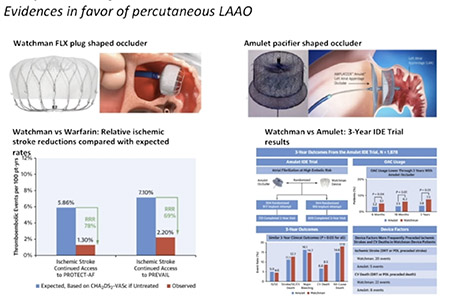Minimally invasive left atrial appendage occlusion plus reduced dose direct oral anticoagulant to prevent stroke in patients with atrial fibrillation—the LAAO-PlusRE
Abstract
The onset of atrial fibrillation (AF) has a direct association with left atrial appendage (LAA) function, as demonstrated by recent studies demonstrating the link between left atrial (LA) wall fibrosis, impaired contractility, and the development of AF. Non-valvular AF (NVAF) affects almost 30 million people worldwide, with this number expected to increase in the next 20 years. It is the main cause of ischemic stroke, with significant subsequent economic and social impact. Currently, the mainstay of stroke prevention in patients with NVAF is oral anticoagulation (OAC), which reduces the incidence of ischemic events at the stake of increased hemorrhagic events. Despite the introduction and widespread use of direct oral anticoagulants (DOACs), which almost completely replaced vitamin K antagonists (VKAs), the adherence to OAC is still low, hindering the efficacy of stroke prevention. Percutaneous LAA occlusion (LAAO) is now indicated (class IIB) in patients with NVAF at increased ischemic risk who cannot undergo OAC. Recently published data demonstrated that a reduced dose of DOAC after percutaneous LAAO is superior to long-term dual antiplatelet therapy (DAPT) for stroke prevention in the mid-term. One of the possible pitfalls of percutaneous LAAO is postprocedural peri-device leaks (PDLs) that have been associated with increased thromboembolic events. According to LAAOS III results, surgical LAAO during cardiac surgery brings a 33% reduction in risk of stroke at five years, independently from the OAC regimen with a high rate of complete appendage occlusion. The combination of surgical LAAO and reduced dose DOAC might ensure adequate embolic prevention, lowering the hemorrhagic risk. The present manuscript aims to describe the rationale and design of the Minimally Invasive Left Atrial Appendage Occlusion Plus REduced Dose DOAC To Prevent Stroke In Patients With Atrial Fibrillation Randomized Clinical Trial (LAAO-PlusRE).
Cover






